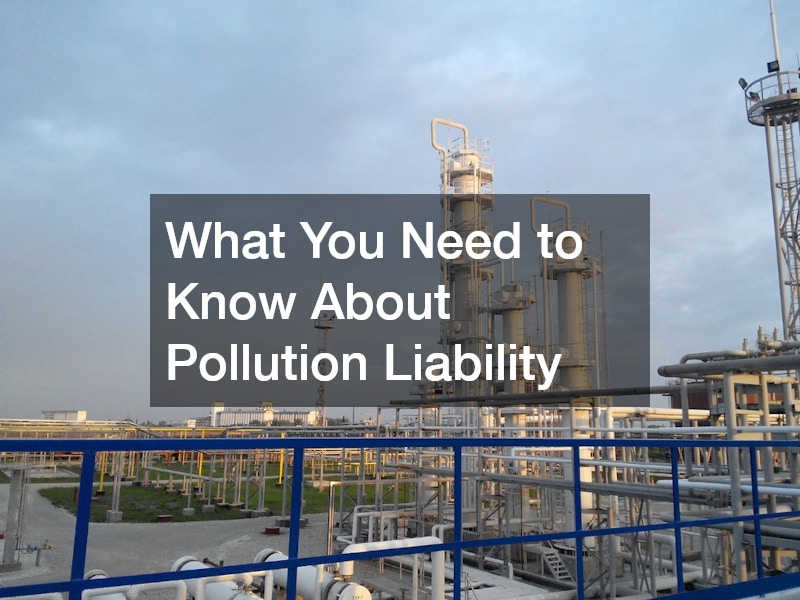When you hear the term ” pollution liability,” it’s easy to assume it’s something that only large industrial companies need to worry about. But, as environmental regulations tighten and businesses become more conscious of their environmental impact, understanding environmental liability is more important than ever.
What is Environmental Liability?
At its core, environmental liability (also called pollution liability) refers to the legal responsibility for any damage caused to the environment. This can involve contamination of soil, water, or air due to the activities of your business, and it can get quite complicated when it comes to who’s responsible. Often, this leads to commercial disputes, especially when multiple parties, like landowners, previous operators, or tenants, are involved.
You could be held accountable for pollutants that have been released during your operations, or even for contamination that was caused before you took ownership of a property. The law can sometimes seem a bit harsh in this area..
If you’re not careful, these disputes can really escalate into full-blown commercial litigation, where companies fight over who’s at fault for environmental damages. This is where having a commercial lawyer on your side becomes critical.
The Risks of Environmental Liability
One of the most surprising elements of environmental liability is how broad it can be. It doesn’t just cover the costs of cleanup, but also potential fines from regulatory bodies, legal costs, and even third-party claims. These claims can come from neighboring property owners, local residents, or environmental groups, who might sue if they believe your activities have damaged their land, health, or way of life.
Types of Pollution Liability
There are several types of environmental liability you need to be aware of, especially if you own or lease property or deal with waste and hazardous materials. Here’s a brief rundown:
- Operational Pollution: If your business releases pollutants into the environment during its operations (such as oil spills or chemical leaks), you could be liable for the damages and the cost of cleanup.
- Site Contamination: If you own or lease a site that’s contaminated, you could be held responsible for the cleanup, even if the contamination occurred before you took over the property. This is called “strict liability,” which means that the courts don’t necessarily care who caused the pollution; if you’re the owner, you’re responsible.
- Transporting Hazardous Materials: If your company transports hazardous materials, and an accident leads to pollution (for example, a truck spill), you could be on the hook for the environmental damage caused by that spill.
- Third-Party Claims: Environmental claims don’t always come from the government. If someone believes your business has caused pollution that has harmed their property or health, they can sue you for damages. These cases often lead to commercial litigation, with battles over who is responsible for what.
Avoiding Pollution Liability
So, what can businesses do to protect themselves from environmental liability?
- Know the Laws: Environmental regulations can vary depending on your location and industry. It’s essential to stay up to date on the laws that apply to your business. A commercial lawyer who specializes in environmental issues can be a valuable asset in this regard.
- Due Diligence: If you’re buying or leasing a property, make sure to conduct thorough environmental assessments. You don’t want to be surprised by a contamination issue later on. Your commercial lawyer can help ensure that you’ve covered all your bases before signing on the dotted line.
- Insurance: Environmental liability insurance can cover the costs of cleanup, legal fees, and other expenses related to pollution claims. Make sure to review your policy with your lawyer to see what it covers and whether it’s enough to protect your business.
- Proper Waste Management: If your business handles hazardous materials, make sure you have the right systems in place to manage waste and prevent accidental releases. Proper storage, handling, and disposal practices can go a long way in preventing pollution and potential liability.
When Environmental Disputes Turn into Litigation
In conclusion, pollution liability or environmental liability, as it’s often referred to, affects more businesses than you might think. Whether it’s operational pollution, site contamination, or third-party claims, understanding your responsibilities and taking proactive steps can save your business from the dangers of costly legal battles. And when it comes to navigating the complexities of these laws experts like Mary Lopatto is your best ally.

